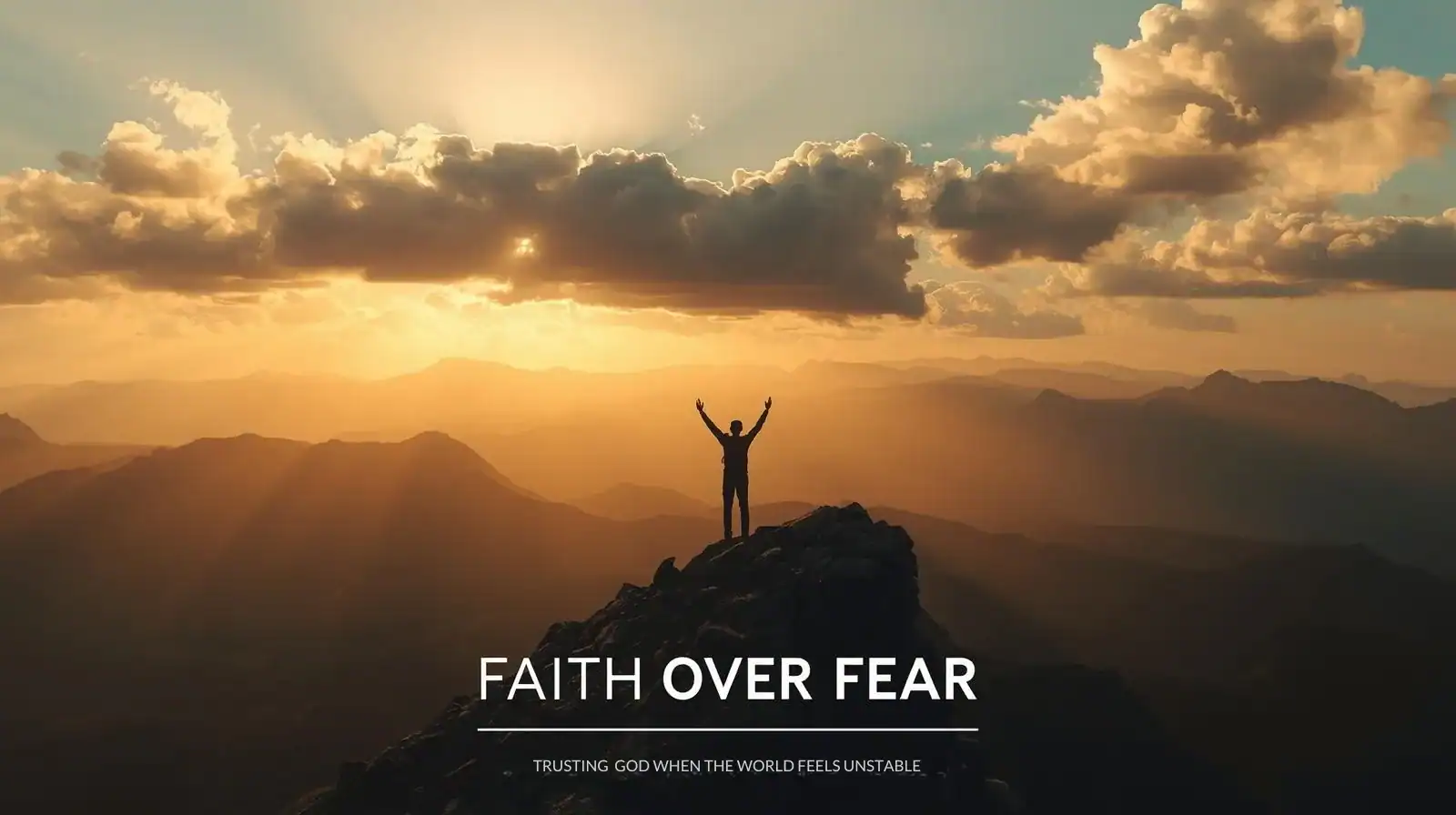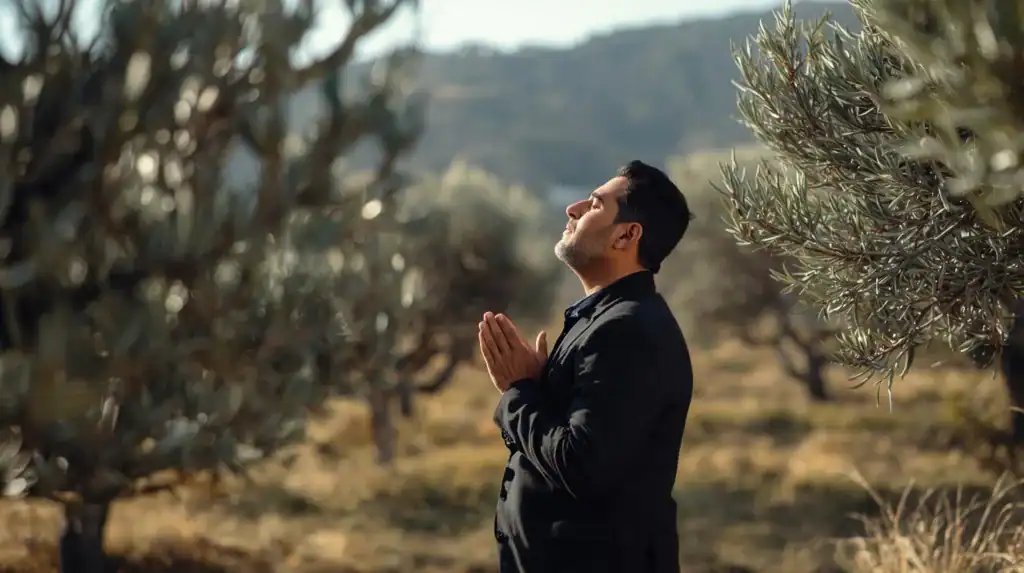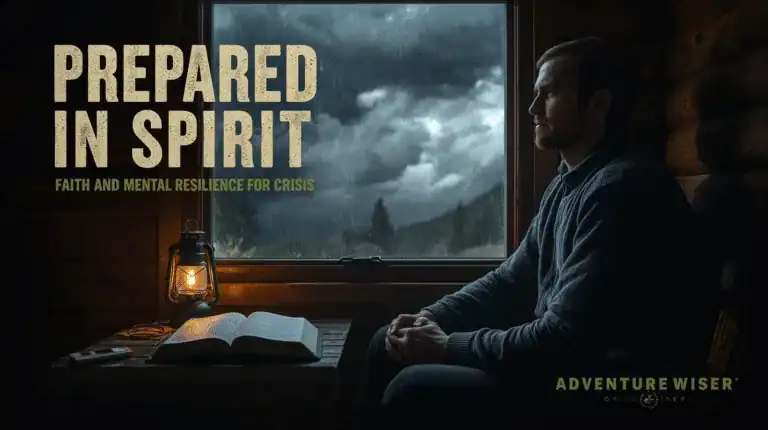
Faith Over Fear: Trusting God When the World Feels Unstable
The world feels like it’s running on duct tape and headlines these days. One minute it’s financial markets tanking, the next it’s natural disasters, wars, or health scares that dominate our newsfeeds and conversations. Fear is easy—it creeps in with every breaking news alert, every uncertain diagnosis, every “what if” our restless minds conjure up in the quiet hours of the night.
But here’s the profound truth that Scripture declares over our circumstances: fear doesn’t have to be your master. Faith can be. Faith doesn’t erase the storm, but it fundamentally transforms how you walk through it, who you lean on, and where you find your security. And if there’s ever been a time to trade our natural inclination toward fear for supernatural faith, it’s right now.
This Worship Wednesday, let’s dive deep into how to trust God when the world feels unstable—and how to cultivate a peace that doesn’t fluctuate with circumstances, stock prices, or breaking news, but flows directly from Christ Himself.
What Does “Faith Over Fear” Really Mean?
“Faith over fear” isn’t merely a trendy slogan you slap on a coffee mug or Christian t-shirt (though it certainly makes an impactful one). It’s a radical, Scripture-rooted mindset that acknowledges fear’s presence while refusing to surrender to its demands. It’s the difference between being controlled by our circumstances and being anchored in the unchanging character of God.
Consider these foundational truths:
“For God has not given us a spirit of fear, but of power and of love and of a sound mind.” — 2 Timothy 1:7
This verse reveals something crucial: fear isn’t from God. When we feel overwhelmed by anxiety about the future, consumed by worry about things beyond our control, or paralyzed by “what if” scenarios, we’re operating under a spirit that God didn’t author. Instead, He’s equipped us with power (the ability to face challenges), love (the security of being deeply known and cherished), and a sound mind (clarity that cuts through confusion).
“Fear not, for I am with you; be not dismayed, for I am your God.” — Isaiah 41:10
Notice the beautiful dialogue Scripture creates between fear and faith. Fear whispers lies: “You’re all alone in this.” Faith answers with God’s truth: “I am with you.” Fear catastrophizes: “What if everything falls apart?” Faith responds with eternal perspective: “Even if it does, God still holds me, and His purposes will prevail.”
“When I am afraid, I put my trust in you.” — Psalm 56:3
David’s honesty here is refreshing. He doesn’t pretend fear doesn’t exist or shame himself for feeling it. Instead, he acknowledges the emotion and then makes a decisive choice about where to place his trust. This is the essence of faith over fear—not the absence of fearful feelings, but the conscious decision to trust God despite them.
Choosing faith doesn’t mean you’ll never experience the flutter of anxiety or the weight of uncertainty. It means fear doesn’t get to write the story of your life or make the major decisions. God does.
Why Fear Creeps In So Easily

Let’s be honest about the reality we’re navigating: we live in genuinely uncertain times, and pretending otherwise isn’t helpful to anyone seeking authentic faith.
Global instability surrounds us. Wars rage in distant countries that somehow feel closer than ever through social media. Political tensions create division even within families and churches. Environmental disasters remind us of our planet’s fragility. These aren’t imaginary concerns—they’re real challenges affecting real people.
Financial uncertainty hits close to home. Inflation makes grocery shopping a budget exercise. Housing costs outpace income growth. Job security feels increasingly elusive in a rapidly changing economy. The financial foundation many previous generations could count on feels shakier for many families today.
Personal struggles weigh heavy. Health scares arrive without warning, forcing us to confront our mortality. Family relationships strain under pressure. Career paths that once seemed certain shift unexpectedly. The question “what’s next?” can feel more threatening than exciting when the future looks foggy.
Fear shows up strongest when we attempt to shoulder these massive loads ourselves. It thrives on the exhausting illusion that we can—or should—control outcomes that are ultimately beyond our human capacity to manage. We wear ourselves out trying to be the master of circumstances that were never meant to be under our dominion.
Here’s the liberating truth: we can’t control these things, but God can. And more importantly, God already is.
The Biblical Foundation for Fearless Living
Scripture doesn’t minimize the reality of difficult circumstances, but it consistently points us to a God who is greater than any earthly challenge we might face.
Jesus Himself acknowledged life’s troubles: “In this world you will have trouble. But take heart! I have overcome the world” (John 16:33). Christ doesn’t promise a trouble-free life, but He promises His presence and ultimate victory in the midst of trouble.
The early church faced extraordinary challenges — persecution, imprisonment, martyrdom — yet their letters overflow with joy, hope, and confidence in God’s goodness. Paul wrote some of his most encouraging words while chained in Roman prisons. Their secret wasn’t easier circumstances; it was a deeper understanding of God’s sovereignty and love.
Old Testament saints walked through unimaginable trials yet left us examples of unwavering faith. Abraham trusted God’s promises even when they seemed impossible. Joseph maintained hope during years of unjust imprisonment. Daniel stayed faithful even when it meant facing hungry lions. Their circumstances didn’t determine their faith; their faith shaped their response to circumstances.
How to Live Faith Over Fear: A Practical Guide
Faith over fear moves beyond inspiration to become a daily, practical way of navigating life’s uncertainties. Here’s how to cultivate this transformative mindset:
1. Anchor Yourself in Scripture’s Truth
Fear speaks loud, urgent messages that demand immediate attention and reaction. Scripture speaks louder with eternal truth that puts temporary troubles in proper perspective. The Bible isn’t just a collection of nice thoughts—it’s God’s living Word that has the power to renew our minds and redirect our hearts.
Keep verses like Psalm 56:3 (“When I am afraid, I put my trust in you”) readily accessible. Write them on index cards in your wallet, set them as your phone’s lock screen, or memorize them word-for-word so they’re available when anxiety strikes at 3 AM and you can’t reach for your Bible.
Create a personal arsenal of verses that speak directly to your specific fears. If financial worries dominate your thoughts, meditate on Philippians 4:19: “And my God will meet all your needs according to the riches of his glory in Christ Jesus.” If health concerns create anxiety, hold onto Jeremiah 30:17: “But I will restore you to health and heal your wounds, declares the Lord.”
The goal isn’t to use Scripture like a magic formula, but to saturate your mind with God’s perspective until His truth becomes more familiar and believable than fear’s lies.
2. Pray with Radical Honesty

God isn’t grading your prayers for eloquence or theological precision. He’s your loving Father who wants authentic relationship, not religious performance. This means you can bring your fears to Him exactly as they are—messy, illogical, overwhelming, embarrassing.
Tell Him when you’re scared about your job security. Admit when global events make you feel helpless. Confess when you lie awake at night creating worst-case scenarios in your mind. The act of naming your fears before God—speaking them out loud in prayer—begins to loosen fear’s grip on your heart.
Prayer isn’t just about asking for things; it’s about aligning your heart with God’s heart. As you spend time talking with Him about your concerns, you’ll often find your perspective shifting. Problems that seemed insurmountable in the darkness of worry begin to look different in the light of God’s presence and promises.
Consider keeping a prayer journal where you write out your fears and then record how you’ve seen God’s faithfulness in addressing them over time. In one of Dr Charles Stanley’s sermons, he preaches on keeping a prayer journal. It is mentioned multiple times throughout this sermon and many others. This creates a tangible reminder of God’s track record in your life, which strengthens faith for future challenges.
3. Surrender the Illusion of Control
This step stings because it requires acknowledging a truth our culture rarely embraces: we are not in control of most of what happens to us. The stock market will fluctuate regardless of how much we worry about our retirement accounts. Natural disasters will occur without consulting our preferences. Other people will make choices that affect us, and we cannot manage their decisions.
Faith means releasing the steering wheel to the One who already sees every turn in the road ahead. It means trading the exhausting burden of trying to control outcomes for the peace of trusting Someone who actually can.
Surrender doesn’t equal passivity. We’re still called to be wise stewards, make responsible decisions, and take appropriate action where we can. But we hold these responsibilities lightly, recognizing that ultimate outcomes rest in God’s capable hands, not our limited ones.
When you catch yourself spiraling into “what if” thinking, practice this prayer: “God, I cannot control this situation, but You can. I choose to trust Your wisdom and timing rather than exhausting myself with worry about things beyond my power to change.”
4. Cultivate Christian Community
Fear thrives in isolation, whispering lies that you’re the only one struggling, that your situation is uniquely hopeless, that no one would understand if they knew the full truth of your circumstances. Faith flourishes in the context of authentic Christian community where these lies are exposed and replaced with truth.
Whether through a small group, church family, or a few trusted friends who share your faith, don’t attempt to navigate uncertainty alone. Share your struggles honestly with people who will pray for you, remind you of God’s faithfulness, and offer practical support when possible.
The early church modeled this beautifully: “All the believers were together and had everything in common. They sold property and possessions to give to anyone who had need” (Acts 2:44-45). While our context may look different, the principle remains—we’re meant to carry burdens together, not individually.
Look for opportunities to be this kind of supportive community for others as well. Often, focusing on encouraging someone else’s faith helps strengthen your own trust in God’s goodness.
5. Remember God’s Track Record
When present circumstances feel overwhelming, intentionally recall the stories of God’s faithfulness throughout Scripture and in your own life. David didn’t approach Goliath with fear because he remembered how God had delivered him from lions and bears while shepherding his father’s flocks. His past experiences with God’s protection gave him confidence for the current giant.
Jesus didn’t panic during the storm because He knew His Father’s power over creation. When the disciples feared for their lives, Christ spoke peace into the chaos, demonstrating authority over the very elements that seemed threatening.
Create your own collection of “remembrance stones”—specific moments when you’ve seen God’s provision, protection, or guidance in your life. When current fears feel overwhelming, rehearse these testimonies of God’s faithfulness as evidence of His continued care for you.
Read biographies of believers who walked through extraordinary trials with unwavering faith. Their stories remind us that the same God who sustained them through persecution, financial ruin, illness, and loss is the same God who walks with us through our current uncertainties.
6. Focus on God’s Character, Not Circumstances
Fear fixes our attention on changing circumstances—what might happen, what could go wrong, what seems impossible to navigate. Faith shifts our focus to the unchanging character of God—His love that never fails, His wisdom that never errs, His power that never diminishes.
When you feel fear rising, consciously redirect your thoughts from “What if this happens?” to “Who is my God?” Rehearse His attributes: He is sovereign (in control of all things), omniscient (knowing everything), omnipotent (able to do anything), and omnibenevolent (good in all His ways).
This isn’t positive thinking or denial of real problems. It’s choosing to interpret temporary, changing circumstances through the lens of eternal, unchanging truth about God’s nature and His love for you.
Living Faith Over Fear in Specific Situations
When financial anxiety strikes: Remember that God knows your needs before you ask (Matthew 6:8) and has promised to provide for His children (Matthew 6:26). Practice gratitude for current provision while trusting His continued care for your future needs.
When health concerns create fear: Acknowledge that your life is in God’s hands, whether in sickness or health (Job 14:5). Pray for wisdom in medical decisions while resting in the truth that God’s purposes for your life will be accomplished regardless of circumstances.
When global events feel overwhelming: Remember that God is sovereign over nations and world events (Daniel 4:35). While staying informed and praying for those affected by global crises, resist the temptation to carry burdens too heavy for human shoulders.
When family relationships strain: Trust that God can work even in difficult relational dynamics (Romans 8:28). Focus on your own responses and choices rather than trying to control others, while praying for healing and restoration.
Wrapping Up: A Challenge for This Week

Fear is a normal human emotion that signals potential threats and prompts us toward self-protection. But it doesn’t have to govern your decisions, steal your peace, or write the story of your life. Faith over fear is a choice you’ll make daily, sometimes hourly, as you navigate an uncertain world with a certain God.
Here’s a specific challenge for this week: Choose one Bible verse about fear or God’s faithfulness and commit it to memory. When fear shows up uninvited (and it will), speak that verse out loud as a declaration of truth over your circumstances.
Let this Worship Wednesday mark the beginning of a new habit—choosing faith over fear, one anxious moment at a time. Remember that faith isn’t the absence of fear; it’s the presence of trust in a God who is greater than anything you’ll face.
Extended FAQs: Faith Over Fear
Q: Does choosing faith mean I’ll never feel fear again? A: Absolutely not. Fear is a God-given emotion that serves important purposes, like alerting us to genuine dangers and prompting wise caution. Even Jesus experienced fear in the Garden of Gethsemane before His crucifixion. The difference lies not in eliminating fear but in how we respond when it arises. Faith means fear doesn’t get to make the final decision about how you live, what chances you take for God’s kingdom, or how much peace you experience daily.
Q: How do I build stronger faith when I feel spiritually shaky? A: Faith grows through consistent nourishment, just like physical strength develops through regular exercise. Spend daily time in God’s Word, allowing Scripture to renew your mind with truth. Maintain regular prayer, viewing it as conversation with a loving Father rather than religious duty. Lean into your Christian community, being honest about your struggles rather than pretending to have it all together. Look for small ways to step out in faith, as obedience in little things builds confidence for bigger challenges.
Q: What if my situation really is genuinely unstable or dangerous? A: Faith doesn’t require us to deny reality or pretend difficult circumstances aren’t actually difficult. Biblical faith acknowledges hard truths while declaring that God is greater than any earthly situation. Joseph was genuinely imprisoned unjustly, but God used those years to prepare him for leadership. Daniel really was thrown into a lions’ den, but God protected him there. Paul actually was beaten and shipwrecked, but God’s purposes were accomplished through his sufferings. Faith means trusting God’s goodness and sovereignty even when—especially when—circumstances look genuinely threatening.
Q: How do I help my children develop faith over fear in such uncertain times? A: Children learn more from watching our responses than from hearing our words. Model faith by staying calm during family crises, praying together about concerns instead of just worrying, and speaking about God’s faithfulness in age-appropriate ways. Create family traditions of remembering God’s provision and protection. When frightening events happen, acknowledge their feelings while pointing them to God’s greater power and love. Limit their exposure to news and social media that might amplify fears beyond their developmental capacity to process.
Q: Is it wrong to feel afraid about global events I can’t control? A: Feeling concerned about suffering, injustice, and chaos in the world reflects a heart that cares about others and desires God’s kingdom to come on earth. The question is whether this concern motivates faithful action (prayer, giving, service) or paralyzes you with anxiety. Channel your concern into intercession for those affected, support for organizations addressing these issues, and trust that God’s ultimate justice and restoration will prevail.
Q: What about when fear seems to protect me from making foolish decisions? A: Godly wisdom and fear-based paralysis are very different things. Healthy caution that leads to wise planning, appropriate boundaries, and careful decision-making is biblical prudence. Fear that prevents you from obeying God’s clear calling, serving others sacrificially, or trusting His provision stems from unbelief rather than wisdom. Ask God for discernment to distinguish between wise caution and faithless anxiety.
⚔️ Takeaway: The world is unstable, but your heart doesn’t have to be. Your security rests not in unchanging circumstances—which don’t exist—but in the unchanging character of a God who loves you perfectly and holds your future securely. Choose faith over fear, not as a one-time decision, but as a daily discipline that transforms how you navigate uncertainty with divine peace.






